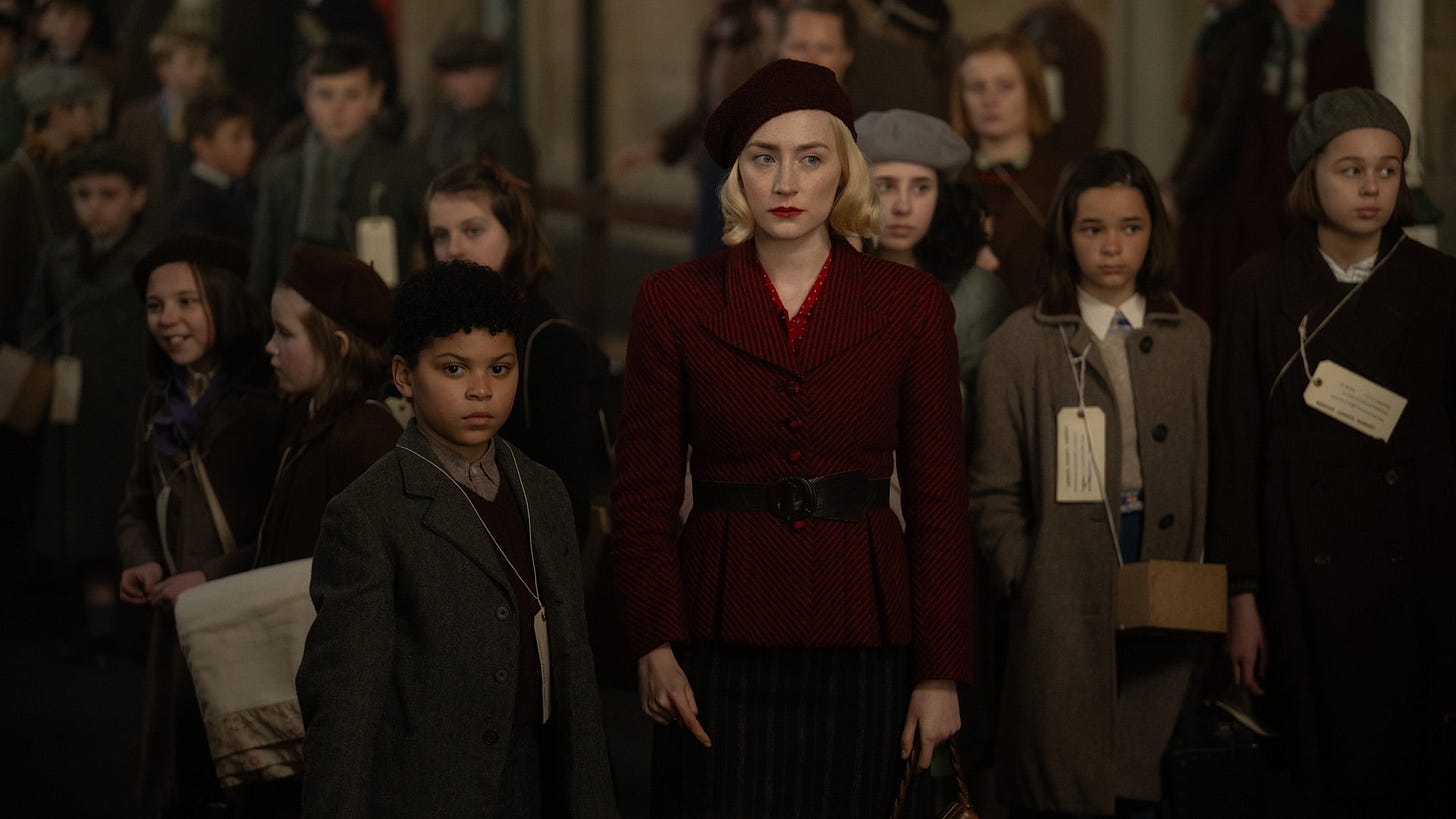Blitz review - McQueen's wartime drama lacks cohesion
The perspective of the child has often been used to show wonder on the big screen, however in Steve McQueen’s latest film, Blitz, taking a look at one of the most harrowing tales of British life in World War II, it is a loss of youthful innocence as the reality of war becomes abundantly clear. Unlike the war films of Dunkirk or even Darkest Hour, Blitz takes a look at the normal people living on the streets of London during the bombings, which take their name from Blitzkrieg, German for Lightning War. McQueen thrusts the audience into the world of the British capital in September 1940. Hard cutting from a title card into a scene of an intense orange haze. Thrust into a world of chaos, as firefighters scramble to save a building ablaze before the next air strike. In an intense and frightening affair with a helpless distance showing McQueen’s assured nature behind the camera.
McQueen’s subjects are George, a young mixed-race boy played by the captivating Elliot Heffernan and his mum, Rita, played by the always brilliant Saoirse Ronan who we see watching her boy sleep with a fearful look on her face – one scared for his safety but also the fact that she may have to let him go and evacuate to the countryside. To escape a world of helplessness, in one of the opening scenes we see them force themselves through the locked gates of Stepney Green tube station in order to escape the imminent bombs of the German Luftwaffe. Whilst Rita eventually decides to send her boy off to safety, the rebellious and resentful George finds a way back to the dangers of the capital, going through a series of dangerous events as he makes his way home.
Whilst Blitz feels like it should be a harsh, gritty and helplessly dark depiction of the War, McQueen takes it in a surprising direction, focusing on the child-like perspective of wartime life. McQueen’s script often distils complicated ideas into childish anecdotes – such as Rita saying that the evacuation is an adventure only for children. Whilst this is an interesting and unique avenue for the film to take, perhaps a film titled Blitz would have benefited from a darker and more intense depiction. Instead, Blitz has a childlike adventure to it as George gets disorientated through the streets of war-torn London
However, the childlike narrative works fairly well through McQueen’s intimate style. It doesn’t have the gloss of Shame or Widows, but rather the grittier lived in Britain of his anthology series Small Axe. Like Small Axe, it takes an almost slice-of-life approach, with George facing a series of obstacles in an attempt to make it back to his home. Meanwhile his mum Rita works in machinery, making bombs and shining a light on the work women did during the war.
The film is juggling a lot of themes throughout. On the one hand, it is about George losing his innocence. When he is heading back to London, he has little contemplation about the war, he is rebelling at the fact his mum chose him to send him away, but as the film continues he sees people die in front of him and the devastation and destruction of bombed Britain. George also struggles with racial discrimination and segregation, showing a divided Britain not yet accepting of non-white people. On the train, he is bullied for his skin colour, and he is also discriminated against at a shelter.
However, the film also shows Rita as a mum looking for her son who didn’t make it to his destination. At the same time, she is a singer who uses her timeslot on the radio to protest her lack of shelter for normal people. But with all these ideas comes cluttered confusion, to the point you ask what is the film trying to be. Is it a story of a boy coming to terms with the Blitz? Is it to highlight the struggle of the working class getting to shelters. Is it about how there is a loss of innocence both in George, but also his mum, who makes bombs with little contemplation about how her craftsmanship is going to be used. Is it about racial discrimination and division? Whilst these are all good ideas, McQueen is not able to provide narrative cohesion, with some of them being quite shallow in depth. Perhaps what binds them is the idea of unity over division – but even then, this isn’t shown as bluntly or as potently as it could have.
Whilst this is far from McQueen’s finest work, Blitz is still an assured, intriguing and at times frightening film about the bombings over London. However, the film struggles from having too many ideas without being fully fleshed out, meaning a messy and poorly constructed final product.





